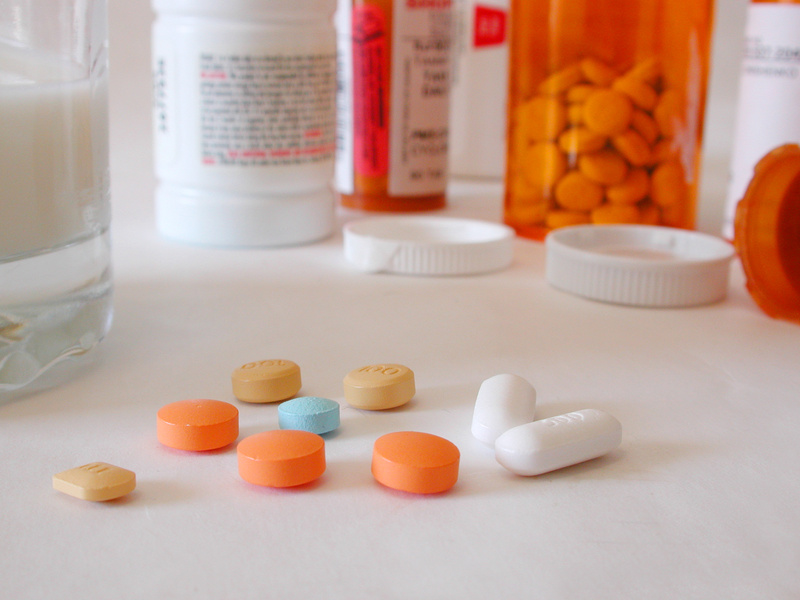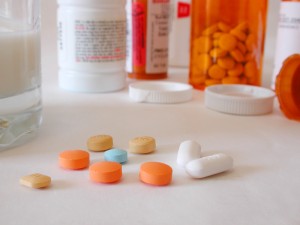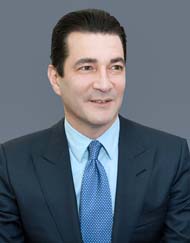FDA acts to avoid shortages of medications made in PR

The head of the U.S. Food and Drug Administration, Scott Gottlieb said this week the agency is “doing all it can” to support the immediate needs of Puerto Ricans after Hurricane María’s destruction, as well as ensure supplies of critical drugs produced on the island.
“First and foremost, these efforts are focused around our mission-driven responsibilities to ensure the safety of the medical products, blood and the food supply needed by residents of the island,” he said.
“Our efforts also encompass challenges that are unique to Puerto Rico. The island is home to a substantial base of manufacturing for critical medical products that supply the entire world,” Gottlieb noted.
“This industrial base is an important source of jobs and economic vitality for the island. It is a key to Puerto Rico’s economic recovery. The manufacturing facilities are also a pivotal source of critical medical products for the entire United States. Helping to bring these resources back in operation is an important goal of ours and of Puerto Rico’s,” he said.
Last week, he provided an update on the FDA’s initial efforts to respond to the impact of Hurricane María, which added to the damage Hurricane Irma left just 10 days before in the U.S. territories of Puerto Rico and the U.S. Virgin Islands.
“News coverage has touched on an issue about which we at FDA are very concerned and we are working around the clock to address — the potential for shortages of critical life-saving and life-sustaining drugs needed by patients on and off the island,” he said.
The medical product industry has a large presence in Puerto Rico, with dozens of drug and device manufacturing facilities that are responsible for the production of products — like cancer drugs, immunosuppressants used by transplant patients and devices needed for people with diabetes.
These are products that are used daily in hospitals, outpatient clinics and homes.
“Leading up to the storm, our team of shortage experts worked to identify and coordinate with companies that have manufacturing facilities in Puerto Rico to assess the potential impacts on their facilities to avoid — whenever possible —shortages of critical medical products,” he said.
“During and following the storm, we have worked with pharmaceutical and medical device firms to figure out whether manufacturing facilities were damaged, or if they were still operational and could continue to function on generator power,” Gottlieb added.
Since last Friday, the agency has been working closely to relocate products in coordination with federal and local government officials and pharmaceutical companies.
“And while our work is not done, I am extremely thankful to all those at the FDA, the Departments of Health and Human Services and Homeland Security (DHS) as well as local agencies for their commitment to finding a solution that would help avoid catastrophic drug shortages,” he said.
“This critical work included clearing debris to reach facilities; assessing fuel needs to keep generators running; and securing permissions to allow planes to land in Puerto Rico and fly critical products to the continental United States,” the FDA commissioner said.
“This work is not instead of lifesaving measures to evacuate, relocate and rescue the people of Puerto Rico. Rather it is being done in parallel — and is also of lifesaving importance to patients who rely on these critical medical products. These efforts are also important to Puerto Rico’s economic recovery,” he added.
This is both a short- and long-term issue, he said, noting the important role that the medical product industry plays in helping Puerto Rico sustain its economy and help in its recovery. The pharmaceutical industry in Puerto Rico is responsible for nearly 90,000 jobs, and the island will need them to recover and rebuild, he said.
“This is a catastrophic event unlike many the United States has faced. At the FDA we are pushing beyond our normal processes to support the relief efforts in Puerto Rico — whether it’s working to prevent shortages of life-saving therapeutics, helping to coordinate plane landing rights between DHS and pharmaceutical companies, ensuring ample blood supply or helping facilitate access to resources on the ground that our fellow citizens will need in their recovery efforts,” Gottlieb said.
“We stand ready to use all our resources to help in these missions,” he concluded.












